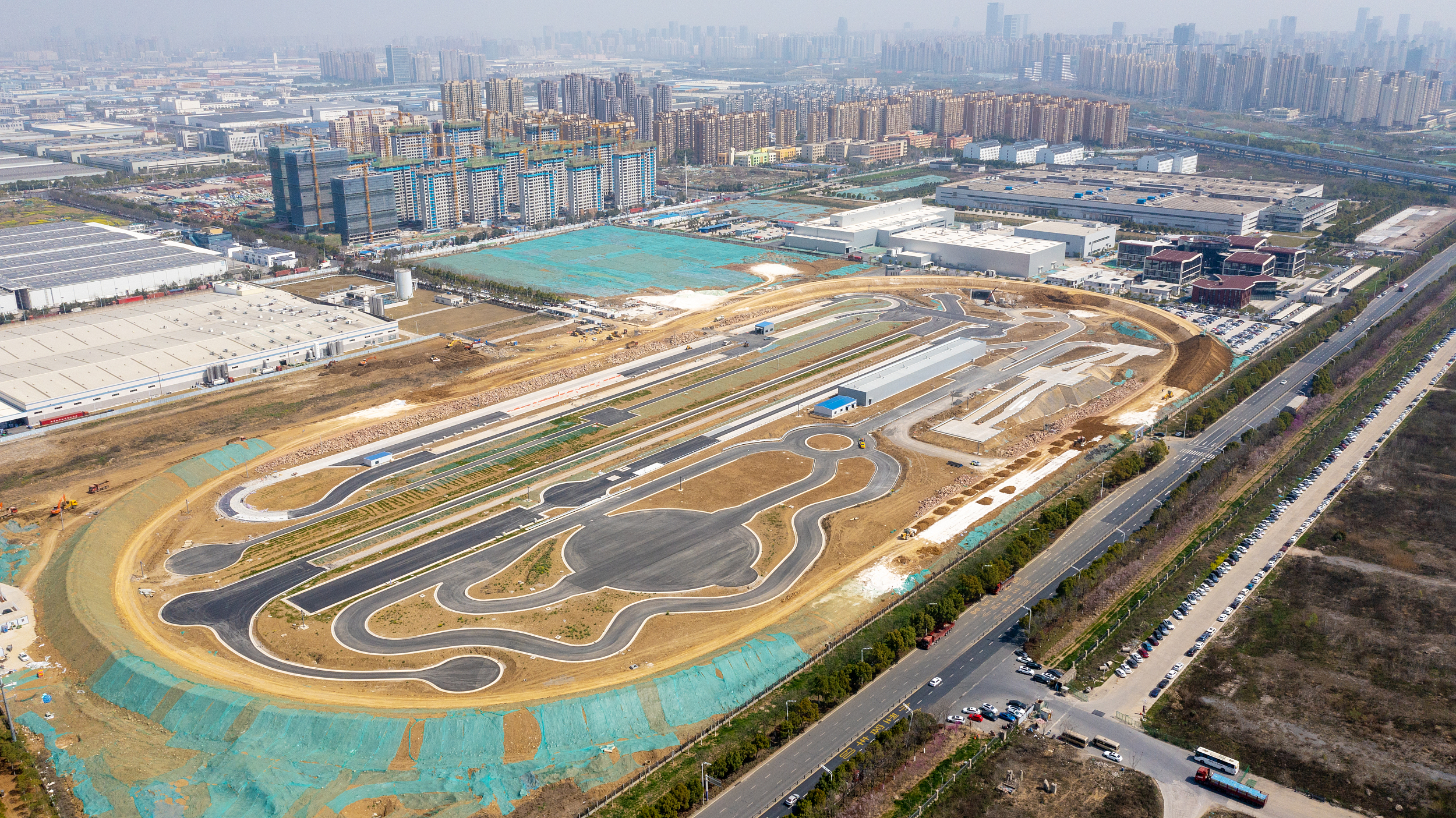China and Germany Are Partners, not Rivals

The R&D test site, located in the park of Volkswagen Anhui R & D center in Hefei, China's Anhui province, is under construction in March, 2023. (PHOTO: VCG)
By GONG Qian
Germany published its first and long-anticipated China strategy on July 13, which will serve as a compass for its relations with China. The strategy is shaped by internal division from various interested parties. It treats China as "a partner, competitor and systemic rival." Some Western media and politicians argued that it signals a "split" from Sino-German relations in the past. But it is too early to come to that conclusion.
Responding to the 64-page document, Chinese Foreign Ministry spokesperson Wang Wenbin said that the two countries are partners, not rivals.
On one hand, the German government has obviously adjusted its policy towards China given the rapidly changing international environment and rising geopolitical tensions. Specifically, the strategy comes amid China's growing global influence and the so-called "de-risking" from China, along with the ongoing Russia-Ukraine conflict.
"The publication of the China Strategy indicates that Europe's largest economy is adjusting its position and terms of engagement with China, in ways that are likely to benefit the transatlantic relationship," said the Center for Strategic and International Studies in Washinton DC.
On the other hand, it is also clear that the cooperation between the two significant economies far outweighs competition in many aspects. The newly released document said China and Europe have benefited greatly from increased political, economic and societal exchanges, as China has achieved strong economic growth, considerable prosperity and an impressive reduction in poverty over the past few decades.
The bilateral economic and trade ties between China and Germany are highly complementary. Trade between the two countries rose to a record level in 2022, with goods worth 298.9 billion Euros (nearly 325 billion USD) being traded, up around 21 percent from 2021, according to German Federal Statistical Office. This means that China remains Germany's single biggest trade partner for the seventh consecutive year.
China provides a vast consumer market for German business, including Volkswagen (VW), BASF and BMW. Taking VW as a specific example, as one of Germany's largest companies, it has profited from the rise of China's economic development. The company depends on China for at least half of its annual profits, which reached 22 billion euros in 2022, according to The Financial Times. VW has also recently revealed its new strategy -- "in China, for China".
Besides that, two-thirds of Germany's rare earth metals requirements, which are indispensable in producing batteries, semiconductors and magnets in electric cars, are imported from China, according to Reuters.
More importantly, as the strategy puts it, China remains an indispensable partner for Germany in climate change, debt crises and food security. In an interview with the South China Morning Post, Dirk Messner, head of the German Environment Agency, said that interaction with China was critical in fighting climate change. The two countries had similar industry structures and could learn from each other and cooperate on decarbonizing the car, steel and concrete industries, he added.
On his visit to Germany this June, Chinese Premier Li Qiang also proposed tackling climate change as one of the guiding visions for future Sino-Germany cooperation, adding that the two countries should promote cooperation in green technology and industry. The two sides has agreed to set up a dialogue and cooperation mechanism on climate change and green transition.
While the world is accelerating the move toward a green economy, China's tech and experience in new energy can give Germany leverage to achieve its energy transition and sustainable development goal.
"We hope Germany will adopt a rational and practical China policy, and work with China to respond to global challenges and contribute more certainty and positive energy to world peace and development," said Wang.







